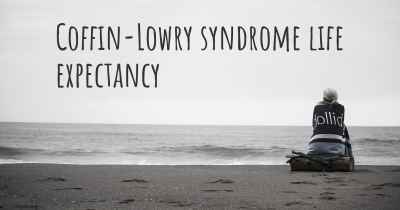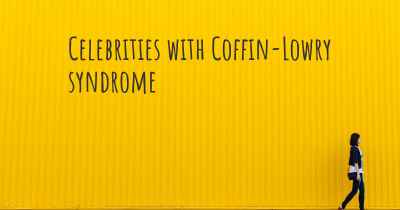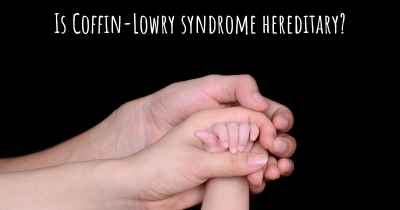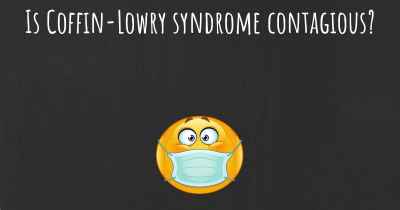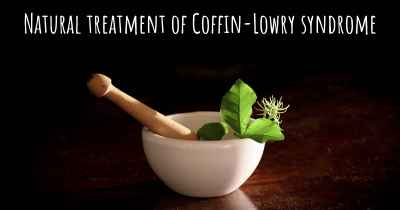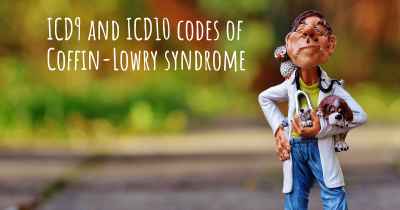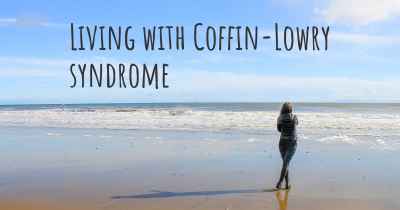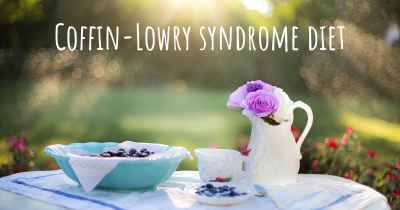What are the best treatments for Coffin-Lowry syndrome?
See the best treatments for Coffin-Lowry syndrome here

Treatments for Coffin-Lowry Syndrome
Coffin-Lowry Syndrome (CLS) is a rare genetic disorder that primarily affects the development and function of the brain. It is characterized by intellectual disability, distinctive facial features, and various physical abnormalities. While there is no cure for CLS, there are several treatments and interventions available to manage the symptoms and improve the quality of life for individuals with this condition.
1. Early Intervention and Education
Early intervention is crucial for children with Coffin-Lowry Syndrome. It involves a multidisciplinary approach that includes speech therapy, occupational therapy, physical therapy, and special education. These interventions aim to address developmental delays, improve motor skills, enhance communication abilities, and promote overall cognitive development. Individualized education plans (IEPs) are often created to tailor educational strategies to the specific needs of each child.
2. Medications
Medications may be prescribed to manage certain symptoms associated with Coffin-Lowry Syndrome. For example, stimulant medications such as methylphenidate (Ritalin) or amphetamines may be used to treat attention deficit hyperactivity disorder (ADHD) symptoms. Antidepressants or anti-anxiety medications may be prescribed to address mood disorders or anxiety that can occur in individuals with CLS. It is important to note that medication choices should be made in consultation with a healthcare professional who is familiar with the individual's medical history and specific needs.
3. Behavioral and Psychological Therapies
Behavioral and psychological therapies can be highly beneficial for individuals with Coffin-Lowry Syndrome. Applied Behavior Analysis (ABA) is a widely used therapy that focuses on teaching and reinforcing positive behaviors while reducing challenging behaviors. ABA can help individuals with CLS develop social skills, improve communication, and manage behavioral issues. Other therapies such as cognitive-behavioral therapy (CBT) or play therapy may also be employed to address specific psychological or emotional challenges.
4. Assistive Devices and Adaptive Equipment
Assistive devices and adaptive equipment can greatly enhance the independence and quality of life for individuals with Coffin-Lowry Syndrome. These may include mobility aids such as wheelchairs or walkers, communication devices like speech-generating devices or picture exchange communication systems, and specialized tools to assist with daily activities. Occupational therapists can assess the individual's needs and recommend appropriate assistive devices to facilitate their participation in daily tasks and activities.
5. Supportive Services and Community Resources
Accessing supportive services and community resources is essential for individuals with Coffin-Lowry Syndrome and their families. Support groups provide a platform for sharing experiences, gaining emotional support, and exchanging information. These groups can help individuals and families cope with the challenges associated with CLS and provide valuable insights into managing the condition. Additionally, community resources such as respite care services, vocational training programs, and recreational activities can contribute to the overall well-being and social integration of individuals with CLS.
6. Regular Medical Monitoring
Regular medical monitoring is crucial for individuals with Coffin-Lowry Syndrome to manage their overall health and well-being. Routine check-ups, including physical examinations, developmental assessments, and screenings for associated medical conditions, can help identify and address any emerging health concerns. It is important for individuals with CLS to have a healthcare team that includes specialists familiar with the condition, such as geneticists, neurologists, and developmental pediatricians.
Conclusion
While there is no cure for Coffin-Lowry Syndrome, a combination of early intervention, education, medications, behavioral and psychological therapies, assistive devices, supportive services, and regular medical monitoring can significantly improve the quality of life for individuals with this condition. It is important for individuals with CLS and their families to work closely with healthcare professionals and specialists to develop a comprehensive treatment plan tailored to their specific needs.
